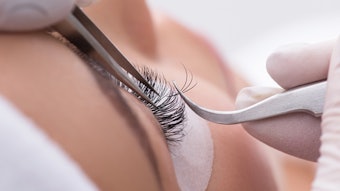
A federal judge in California recently dismissed a lawsuit, which experts said would have caused a major overhaul of beauty and esthetics training and the operation of student clinical salons.
In Benjamin vs. B&H Education Inc., d.b.a. Marinello Schools of Beauty, students of the 110-year-old Marinello Schools of Beauty filed suit under federal labor and employment laws, as well as state laws of California and Nevada, under the premise they should be paid employee wages for work performed on clients at student clinical salons that charge for services. Federal Judge Vince Chhabria of Northern California ruled in favor of the beauty school and dismissed the case, although the plaintiff reportedly plans to appeal the decision.
[The lawsuit was] an attack on the traditional method of learning a trade or skill ... -Attorney Edward M. Cramp
As of this report, five federal judges im similar cases have ruled that the case had no merit and not went to trial. These included cases in New Jersey, Philadelphia, Denver and Chicago.
"[The lawsuit was] an attack on the traditional method of learning a trade or skill which is to learn by doing, not [just] learning in a classroom," Edward M. Cramp, the defendant's attorney, told Skin Inc. "I think you would see large-scale closures of cosmetology, barbering and skin care schools because one of two things has to happen: either you’d have to stop [the methodology] of delivering education by practicing on real people because you wouldn’t be able to charge for those services—so what you would see is a generation of young people learning without actually experiencing how to do these trades on real people. Alternatively, you would see the amount of tuition go up by exactly the amount of wages that the students would have to be paid."
The whole idea of paying students wages to learn is just completely unworkable.
Cramp continued, "The whole idea of paying students wages to learn is just completely unworkable right from the beginning if you think about what that would mean for students. Let’s say a student fails out of school, would they qualify for unemployment? Would they be able to take a leave of absence under the Family Medical Leave Act? Would they be able to sue the school for discrimination if they failed academically under the employment laws? Would the schools be forced to provide health insurance?"
It also raises major questions about the state licensure scheme for all of these different professions, according to Cramp, as well as the minimum amount of practical experience required before being able to be compensated for services.
"So that's skin care, hair, nails … All of the states require that in order to be compensated for providing beauty services, you have to be a licensed professional. This really would raise serious questions about the state's ability to regulate the profession," Cramp said.
How the Judge Conducted a Labor Test
Judge Chhabria's ruling is consistent with three other recent federal rulings in virtually identical cases, the defendant's attorney said. The judge noted that cosmetology students are required under state law to log a certain number of hours to complete their education and to qualify for licensure as a cosmetologist. The schools, including the clinical curriculum, are approved by the California State Board of Cosmetology. Also, the judge found the federal "primary beneficiary" test applied under California law for purposes of determining whether the students were employees of the school.
In doing so, Cramp said, the judge rejected the "control" test used in employee/independent contractor cases. He found that it made "no sense" to apply that test in the education context because the school "has the right to control the students' clinical work ... " Under this test, the judge found the students benefited more than the school from learning to become hairdressers in the school’s student clinic and, therefore, they were not employees under the law.
"They're really just recouping their cost of operation," said Cramp, when asked about the charges the schools set for the clinics. "The amounts that they charge are very modest compared to a regular salon; they charge the same prices as public institutions. There are community colleges that have beauty schools, and they charge for these services as well. The idea that they are making money on just the clinics is kind of silly."
More than 20 lawsuits have been filed under the students' premise. As of publication, the plaintiff's attorney was not immediately available for comment on the case. The defendant's attorney said he plans to oppose the plaintiff's recent appeal.










